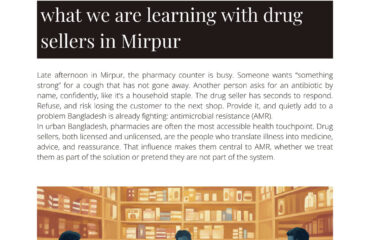On October 2015, Non Communicable Diseases Control Programme of Directorate General of Health Services organized a seminar in collaboration with ARK Foundation to discuss challenges in non-communicable diseases control. Representatives from government and non-government organizations participated in the seminar. Professor Dr. Deen Mohd. Noorul Huq, Director General of Health Services was the Chief Guest. Professor M. A. Faiz presented the key note paper. Professor Abul Kalam Azad, ADG and Line Director-MIS chaired one of the sessions. Representatives from BRAC, ICDDR,B, CIPRB , WHO and ARK Foundation were the key participants among non-government organizations.

Chief guest Dr. Deen Mohd. Noorul Huq delivering his speech

Professor Rumana Huque is delivering her welcome address
The lively discussion of key decision makers, health practitioners, researchers and activists helped identify major challenges of non-communicable diseases control in Bangladesh context. Following challenges were identified:
- Lack of life style education and behavioral change communications is the major obstacle in preventing NCDs.
- Poor surveillance system failing to direct the decision makers to plan for more effective service delivery.
- Research based findings are not considered in planning and new initiatives.
- Graduate and Post-graduate curriculums are not
upda
ted to face new challenges. - Patients are not properly referred for better treatment.
Professor Rumana Huque, Executive Director, ARK Foundation thanked the organizers, guests and general participants for their contributions in identifying the challenges and urged for more effective initiatives to improve lives of underprivileged patients with NCDs.



